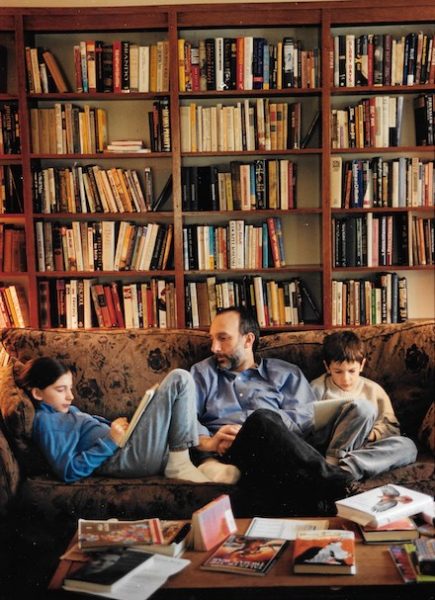In the past few days, since so many schools shut down for the foreseeable future, I have already seen and overheard many parents commenting in frustration on how difficult it is to “homeschool” their children. After half an hour alone with their kids, trying to jam into their brain some data points, they toss up their hands and praise schoolteachers. “I don’t know how they do it!”
I schooled my children at home for about a decade. I am here to help.
The first thing you must know is that homeschooling is not replicating school at home. Many first-time homeschooling parents make the mistake of patterning their homeschooling relationship with their children on the teacher-student relationship one typically finds in school settings. That’s where that relationship should only be employed: in school settings. Outside of school, it must be left behind.
You are not a schoolteacher. You are a parent. Since the moment your child was born, you have been “teaching” your child more than you will ever know (more than, perhaps, you might ever want to know). Schooling a child at home requires most of all that you be the same attentive, loving parent that you have always been. Anything more than that is gravy.
Throw out your school’s curriculum and goals. Remember that we are experiencing a once-in-a-lifetime (we hope) pandemic. Pandemics don’t last forever. You will not be homeschooling your children forever. Schools will open back up eventually – maybe even sooner. Give yourselves and your kids a break. We are living in a state of emergency. Our lives have been totally disrupted. Our short-term financial situation is grim or worse. Your children’s understanding of France’s role vis-à-vis England and the United States in the War of 1812 can wait.
Or not. Let your child’s mind and imagination be your guide. Let your children’s desires be your curriculum. Your number-one job right now is to take care of your children – physically, mentally, and emotionally – and keep them safe. If they want to go out into the backyard and dig holes, let them. Tell them to look for worms while they’re digging. There you have it – instant “experiential” learning. You’re a master teacher now. (Also, make sure that they are careful with and respectful of the worms – an instant, easy lesson in empathy and animal rights.)
It is not your job to force-feed information into your children’s brains. That is not good teaching nor good parenting. Sure, you need to work with your children to help them learn how to add and subtract, multiply and divide. Sure, they need you to ask them probing questions about nature or dinosaurs or the Renaissance or how to tell right from wrong.
But your main job as a homeschooling parent – parent, not teacher, remember – is to facilitate learning. Dig around the house and find appropriate books for them to read. Depending upon their age, have them write one or two sentences about the book when they’re done, or an 800-word book report. If you don’t have books in your house, find stuff to read online. Even better, order some books online for home delivery. When they arrive, let your kids open the package; it’ll add to the sense of excitement about their “reading assignment.” And whatever you do, don’t use the term “reading assignment” with your children. And don’t you dare use the term “homework.” It would be redundant if you did, in any case.
Dig around your streaming services or the Internet or YouTube for documentaries for your kids to watch. Now is not the time to impose screen limits on your children. Monitor their usage, of course. But if they want to watch Sesame Street for four hours (who doesn’t?) or Ken Burns’s The Civil War, all nine-episodes in one sitting, let them! Promise them that once the pandemic is over, you’ll take them on a trip to Gettysburg.
Set reasonable goals. Once you’ve worked with your kids for two good hours, take a break. Heck, maybe even call it a day. Take naps. Play games. Have them help you in the kitchen. Cook up a storm. Teach them how to fold clean clothes. If you don’t know how, find a YouTube video for them to watch. Make it a game.
Did I say, make it a game? Think outside the box. Definitely think outside the box known as “school.” All your interactions with your children involve teaching and learning. Sing songs together. Listen to music. Have them try to keep the beat.
For heaven’s sake, we’re in a pandemic! The last thing your kid needs now is for you suddenly to turn into a monstrous schoolteacher at home. The last thing you need is to destroy your relationship with your children by expecting them to conform to outdated and irrelevant social structures. Try to enjoy your newfound time with your kids.
This is going to be one of those periods of time about which everyone – including your children – will look back upon and tell stories about. Make those stories be happy ones.

